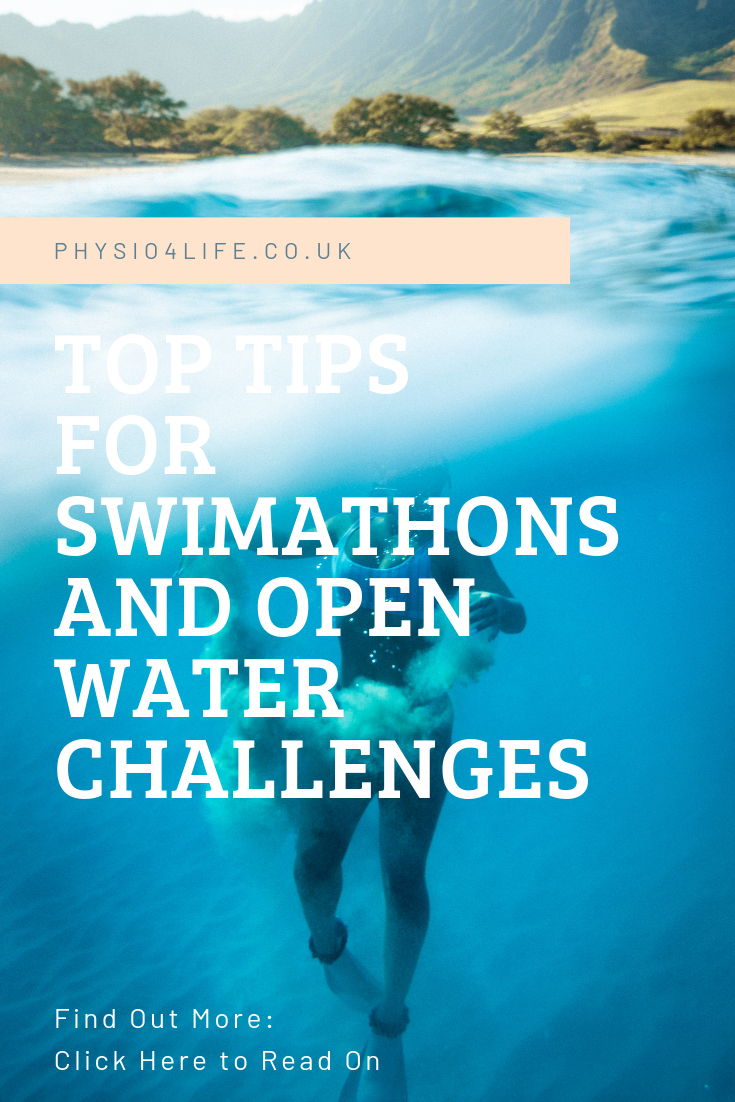
TOP TIPS For Swimathons and open water challenges.
Summer is just around the corner and all these swimming challenges have already started.
- The Isle of Arran in June
- Thames Marathon in August
- The Isle of White challenge
Open water swimming has become more and more popular over the last few years, but can be quite challenging if you don’t prepare yourself for the real challenges. Here are some great tips of advice to get you on your way.
- Visit the pool
As simple as that. It is definitely not the same as swimming in open water but this is the first step. Being in England you cannot train in the sea so easily so it is important that you increase your cardiovascular capacity and you work your swimming technique in a pool.
- Equipment
Choosing the right wet-suit can be tricky. It needs to be nice and tight so that when you swim in it, is not getting loose or creating friction in different parts of your body. Most events will require you to wear a cap so make sure you have the right size and you know how to wear it so that you have no water in your ears or hair disturbing you throughout the swim.
- Develop a training plan
It is important to develop a training program. It is crucial to build your endurance and fitness levels so that you can swim the distance without getting ‘too’ tired. DO NOT get straight in the pool, in session ONE and see if you can swim the whole mileage. You have to be prepared to gradually build it up. The goal will be to see a gradual sustainable improvement. Try to increase your training to no more than 10% on a weekly basis and this will save you from injuries, fatigue and finally missing training sessions.
- Get in open water
It is quite different to swimming in a pool, having your line and pace to getting in open water where you have many people getting in front of you, it may be windy and wavy so putting a lot more effort. Suggestions: get into the pool with a few friends and try to swim at the same line- focus on keeping your pace at all times, otherwise you will exhaust yourself from the first strokes.
- Correct your technique
If you never had a swimming lesson in the past very minor adjustments to your stroke can make you much more efficient in the water.
- Nutrition and Hydration
3-4 days prior to the event start adding some slow burning carbohydrates to your diet, ‘an excuse to eat as much pasta as you want’. the morning of the race have a plain, energising breakfast two hours before you swim and again ensure you are properly hydrated.
- Sighting
Last but not least, when you are in open water you don’t have any straight lines to guide you. You need to practice looking ahead during your swim to find a marker in the distance to follow.
If you have signed for a swimathon, or an open water challenge and you are not sure how to progress, or you feel that you have hit a plateau then speak with us and we will be able to guide you through your journey, or help you get back to your training if an injury has occurred.
Written by Maria Gkini, Senior Physiotherapist.



